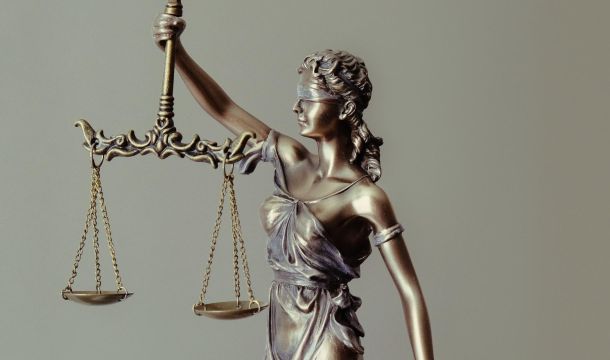Union Organizing Efforts across the Country Continue to Draw Attention
Recent Gallup polls indicate that the public has a favorable opinion of unions with a near record high of 68%, and with the "great resignation," and workers demanding their rights, union organizing across the country is drawing attention. For those employers thinking they are beset with employment litigation, consider the fact that the National Labor Relations Board (NLRB) has more than 170 open cases accusing one employer, Starbucks, of anti-union threats, retaliation, surveillance and other labor law violations. The NLRB has found merit in about 50 of those cases, leading to eight complaints filed against the company. The NLRB has gone to court to get injunctions asking the court to order the reinstatement of terminated workers in two cases, based on allegedly retaliatory firings.
In addition, nearly 300 election petitions for individual Starbucks stores have been filed with the NLRB. The union has won 87% of the 113 elections held as of the end of May. Workers at seven Starbucks stores went out on strike in May. Managers recruited replacement workers to help run the stores while pro-union employees picketed outside the stores, telling the public not to buys Starbucks coffee.
The filing of petitions at individual stores rather than in a broader district is an example of the "micro-unit" elections the current Administration allows. The idea is that unions can single out a group of workers most likely to unionize without bringing in a broader group who might be more inclined to dilute the union support.
The union victory at the Amazon warehouse in Staten Island last month gave the union movement further encouragement. On the other hand, the union lost a nearby second election at Amazon. Further, there was a re-run union election at Amazon's Bessemer, Alabama warehouse, following the set aside of an earlier election that the union lost two to one. The election was set aside because Amazon set up a mail dropbox for ballots in plain view from the warehouse, which the NLRB deemed coercive. In the second election in late March, the union was trailing by a little over 100 votes, as challenged ballots that have not been resolved were sufficient to affect the ultimate election results. It should be noted that turnout was down in the second election, from 55% in 2021 to 39% for the second election.
Mail balloting results in a much lower turnout than balloting in the employers' facilities, where the turnout is over 90%. The NLRB does not seem to worry too much about this form of "voter suppression."
The Starbucks situation is interesting because it provides a $15.00 minimum pay and excellent benefits. The President of Starbucks, Howard Schultz, wrote a book in 1977 which included a portion discussing how he correctly predicted Starbucks' few unionized stores would vote to end their union affiliation after he became CEO, because workers believed in him. "If they have faith in me and my motives, they wouldn't need a union," he wrote. Schultz recently came out of retirement and has again become the spokesperson for the company. Some Starbucks workers still believe the company looks out for them better than a union contract would. This result has been dramatized since after many of the union election wins, Starbucks rolled out 5% raises for non-union employees and stated: "We do not have the same freedom to make these improvements at locations that have a union," due to the NLRB rules concerning union bargaining. Schultz has indicated that collective bargaining wasn't the answer. "We can't ignore what is happening in the country as it relates to companies throughout the country being assaulted, in many ways, by the threat of unionization." After declaring that he wasn't anti-union, just pro-Starbucks, he added: "We didn't get here by having a union."
It should be noted that none of the stores have yet to negotiate a union contract.
Workers have been trained by union organizers to anticipate the company's arguments against unionization, and to prepare workers to expect them. They are trying to approach new hires to unionize, and in anti-union meetings, to ask uncomfortable questions.
In the union campaigns, Starbucks appears to rely heavily on small group meetings, and "one-on-one" conversations with managers. Unions also have the support of volunteers from various unions and community groups to run phone banking operations.
In June, an election was to take place at the first Apple store to hold a union election, in Atlanta. Like in other recent organizing situations, the union there filed an unfair labor practice charge claiming that" "captive audience" meetings set up by management were unlawful. Ex-union lawyer Jennifer Abruzzo, the Biden Administration NLRB General Council, is bringing complaints in an attempt to outlaw mandatory anti-union meetings. Apple's retail head told employees that the effort could slow workplace progress and that third-party labor groups don't share the company's commitment to employees. "It is your right to join a union - and it is equally your right not to join a union," which was said in a video to employees. "And if you're already faced with that decision, I want to encourage you to consult a wide range of people and sources to make sure you understand what it could mean to work at Apple under a collective bargaining agreement." She further commented that: "I don't know if we could have moved this quickly under a collective bargaining agreement as it could limit our ability to make immediate, widespread changes to improve your experience. Because the union would bring its own legally mandated rules that would determine how we work through issues, it could make it harder for us to act swiftly to address things that you raise." The union ultimately withdrew the election vote which had been set for June 2.
This is part of our July 2022 Newsletter.
View newsletter online
Download the newsletter as a PDF
Related Content
Get Email Updates

TPS Update (as of 2/6/2026)

Job Interviews Can Be a Good Selection Device

Suggestions on How to Diffuse a Tense Situation

Employers Blame Unions for Recent Shutdowns

$27 Million Verdict against Employer on Disability Discrimination over Refusal to Return Employee to Work



